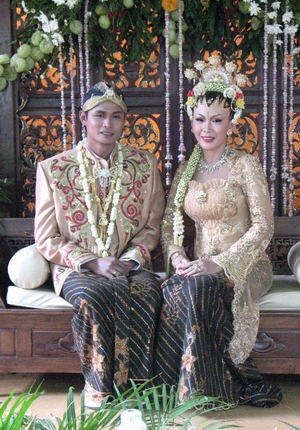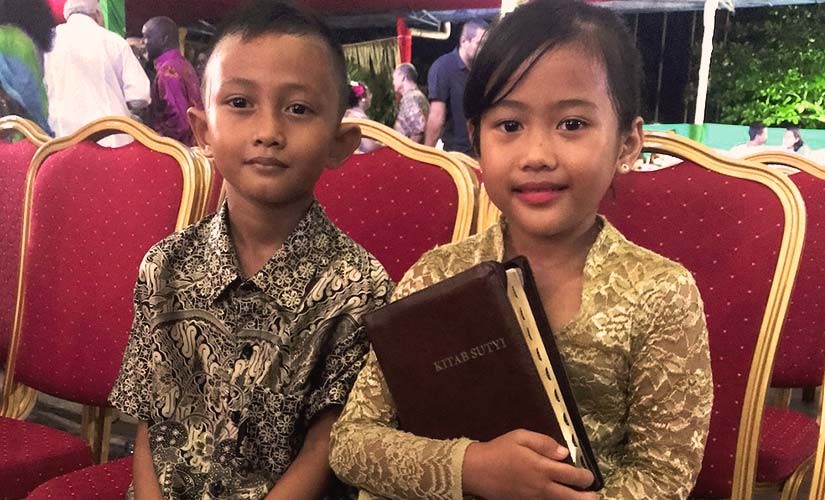Suriname, a picturesque country located on the northeast coast of South America, is home to a vibrant and culturally rich Javanese community. Nestled amidst breathtaking natural beauty, this community holds a distinctive place in Surinamese society. In this article, we take a closer look at the Javanese community in Suriname, exploring their fascinating traditions, cultural heritage, and their contributions to the country’s tourism industry. From their music and dance to their culinary delights, there is much to discover about this unique community and the impact they have on Suriname’s cultural landscape. Join us as we delve into the vibrant world of the Javanese community in Suriname.
History of Javanese Migration to Suriname
The history of Javanese migration to Suriname is a fascinating chapter in the larger story of global migration. Beginning in the late 19th century, thousands of Javanese people made the arduous journey from the Dutch East Indies (modern-day Indonesia) to the Dutch colony of Suriname in South America. This migration was a result of several factors, including economic opportunities, political unrest in Java, and the influence of the Dutch colonial government.
Javanese Immigration to Suriname
The first wave of Javanese immigrants arrived in Suriname in 1890, brought over as contract laborers to work on the various plantations that dotted the Surinamese landscape. They were part of the larger indentured labor system that the Dutch colonial government implemented to maintain their plantations after the abolition of slavery. The Javanese immigrants faced harsh working conditions and substantial cultural shock, but they persevered and established themselves in their new homeland.
Reasons for Migration
There were several reasons why Javanese people decided to leave their homeland and seek a new life in Suriname. One of the primary drivers was economic opportunity. At the time, Java was facing overpopulation, scarcity of arable land, and economic decline. The prospect of a better life in Suriname was appealing to many Javanese, who saw it as a chance to escape poverty and provide for their families.
Political unrest in Java also played a role in the decision to migrate. The Dutch colonial government in the East Indies implemented policies that were oppressive and exploitative, leading to discontent and resistance among the Javanese people. Many saw migration as a form of resistance and a way to escape the oppressive regime.
Lastly, the influence of the Dutch colonial government cannot be underestimated. The Dutch actively recruited Javanese laborers to work on the plantations in Suriname, offering them incentives such as free passage and the promise of a better life. The lure of a new start in a foreign land enticed many Javanese to make the long and treacherous journey.
Settlement and Integration in Suriname
Upon arrival in Suriname, the Javanese immigrants faced significant challenges in settling and integrating into a society that was vastly different from their own. They were placed on the various plantations and had to adapt to new agricultural practices and labor systems. The Javanese worked alongside other ethnic groups, such as Africans and Indians, which created a multicultural and diverse environment on the plantations.
Over time, the Javanese community in Suriname established their own distinct settlements and neighborhoods. They built their own houses, cultivated their own crops, and developed close-knit communities that helped preserve their cultural heritage. Today, Javanese culture and traditions continue to thrive in Suriname, making their mark on the broader Surinamese society.
Javanese Culture and Traditions
Javanese culture is rich and diverse, encompassing various aspects of life, including religion, language, music, dance, and cuisine. The Javanese community in Suriname has successfully preserved and practiced many of these cultural traditions, passing them down from generation to generation.
Religion and Beliefs
Religion plays a significant role in Javanese culture, and this is no different within the Surinamese Javanese community. The majority of Javanese people in Suriname practice a syncretic blend of Islam, Hinduism, and traditional Javanese beliefs. This unique fusion of religious practices is known as “Kejawen” and reflects the syncretic nature of Javanese spirituality.
Javanese Muslims, known as “Abangan,” practice a form of Islam that incorporates elements of Hinduism and traditional Javanese beliefs. They believe in the power of ancestral spirits, practice animism, and incorporate rituals such as “selamatan” (a communal meal) into their religious observances. This syncretic religious tradition has allowed the Javanese community in Suriname to maintain their cultural identity while adapting to their new surroundings.
Language and Literature
The Javanese language, known as “bahasa Jawa,” is spoken by the Javanese community in Suriname, serving as a vital link to their cultural heritage. It is a language of great historical and literary significance, with a rich tradition of poetry, prose, and oral storytelling.
Despite being a minority language in Suriname, efforts have been made to preserve and promote the Javanese language. Schools and cultural organizations offer Javanese language classes, and there are ongoing initiatives to document and archive Javanese literature for future generations.
Traditional Music and Dance
Music and dance are integral parts of Javanese culture, serving as expressions of identity, spirituality, and social cohesion. Traditional Javanese music is characterized by intricate melodies, rhythmic patterns, and a distinctive ensemble known as a “gamelan.” The gamelan orchestra consists of various percussive and melodic instruments, creating a hypnotic and enchanting sound.
Javanese dance is known for its graceful movements, intricate hand gestures, and elaborate costumes. Traditional dances such as the “bedhaya” and “kecak” are performed during special occasions, religious ceremonies, and cultural festivals. The Javanese community in Suriname continues to practice and showcase these cultural traditions, keeping them alive and vibrant.
Cuisine and Culinary Traditions
Javanese cuisine is a flavorful blend of indigenous ingredients, aromatic spices, and cooking techniques influenced by various cultures. Staples include rice, vegetables, tofu, tempeh, and richly spiced dishes such as “soto” (a traditional soup) and “gado-gado” (a vegetable salad with peanut sauce).
Javanese culinary traditions are closely tied to religious and cultural practices. Certain dishes, such as “nasi kuning” (yellow rice), are prepared for special occasions and celebrations. Food also plays a significant role in religious rituals and communal gatherings, where it is shared as a symbol of unity and hospitality.
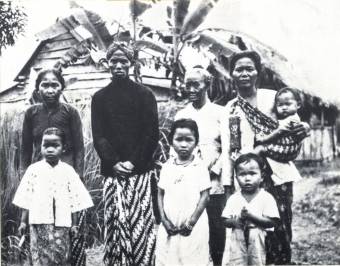
Javanese Language in Suriname
Javanese as a Minority Language
In Suriname, the Javanese language is considered a minority language, spoken primarily within the Javanese community. While Dutch is the official language of Suriname, the Javanese community has made efforts to maintain and promote their language, recognizing its importance in preserving their cultural identity.
The Javanese language is primarily spoken in informal settings, such as within the family and community gatherings. It serves as a means of communication, fostering a sense of belonging and cultural pride among the Javanese community.
Language Preservation Efforts
To ensure the continued vitality of the Javanese language, various organizations and educational institutions have implemented language preservation efforts. Javanese language classes are offered in schools and cultural centers, providing opportunities for younger generations to learn and embrace their mother tongue.
Additionally, cultural organizations and community leaders have taken initiatives to document and archive Javanese language resources, including dictionaries, grammar books, and literary works. These resources not only serve to preserve the Javanese language but also contribute to the overall knowledge and understanding of Javanese culture.
Education and Javanese Identity
Javanese Education in Suriname
Education plays a crucial role in shaping and preserving Javanese identity in Suriname. From a young age, Javanese children are exposed to their culture, language, and traditions through formal schooling and community programs.
Schools catering to the Javanese community provide a curriculum that includes Javanese language classes, cultural studies, and activities that promote Javanese traditions. This education serves to instill a sense of pride and belonging among Javanese students, fostering a strong cultural identity.
Importance of Education for Javanese Community
Education is seen as a means of upward mobility and empowerment for the Javanese community in Suriname. It provides access to broader opportunities, helps in breaking the cycle of poverty, and equips individuals with the skills needed to succeed in various fields.
By prioritizing education, the Javanese community in Suriname has produced professionals, entrepreneurs, and community leaders who actively contribute to the development and advancement of their community. Education also plays a crucial role in preserving Javanese culture and traditions, providing a platform for the transmission of knowledge and values from one generation to the next.
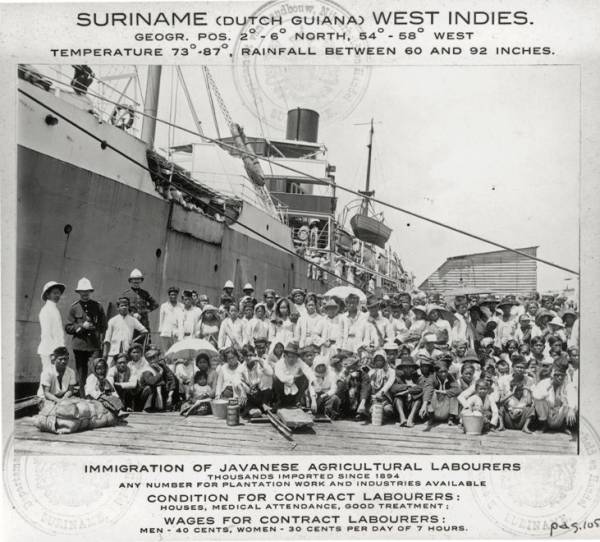
Javanese Influence on Surinamese Society
Art and Entertainment
The Javanese community in Suriname has made significant contributions to the art and entertainment scene in Suriname. Traditional forms of Javanese music and dance, such as gamelan orchestras and classical dances, have been embraced and integrated into the broader Surinamese cultural landscape.
Javanese artists and musicians have also explored and experimented with other genres, fusing traditional Javanese elements with contemporary influences. Their creative expressions have enriched Surinamese art and entertainment, making the Javanese community an integral part of Surinamese society.
Religion and Spirituality
The syncretic blend of Islamic, Hindu, and traditional Javanese beliefs practiced by the Javanese community in Suriname has had a profound impact on the religious landscape of the country. The openness and tolerance within Javanese spirituality have influenced the broader Surinamese society, contributing to a diverse and pluralistic religious environment.
Javanese religious practices, rituals, and beliefs have become embedded within Surinamese culture, often celebrated and embraced by people of different ethnic backgrounds. This intermingling of religious traditions has fostered a sense of unity and respect among Surinamese individuals, regardless of their cultural or religious backgrounds.
Cultural Celebrations
The Javanese community in Suriname actively participates in and organizes various cultural celebrations and festivals, providing opportunities for people from all walks of life to experience Javanese traditions and customs. These celebrations showcase the richness and diversity of Javanese culture, with vibrant performances, traditional food, and cultural exhibitions.
One of the most significant cultural celebrations is the Javanese New Year, known as “Sasi Suriname.” It is a time of reflection, renewal, and community gathering, where Javanese families come together to honor their ancestors, perform traditional rituals, and share festive meals. These celebrations serve as a reminder of the enduring cultural heritage of the Javanese community in Suriname.
Social and Community Impact
The Javanese community in Suriname has made significant contributions to the social fabric and community development in the country. Through various social organizations and associations, Javanese individuals actively engage in initiatives that promote education, healthcare, poverty alleviation, and community empowerment.
These social and community initiatives are rooted in Javanese values of togetherness, mutual support, and cooperation. By working together, the Javanese community in Suriname has been able to address social and economic challenges, create opportunities for progress, and foster a sense of solidarity among Surinamese society as a whole.
Maintaining Javanese Traditions in Suriname
Javanese Cultural Associations
The Javanese community in Suriname has formed numerous cultural associations that serve as the backbone for the preservation and promotion of Javanese traditions. These associations provide a platform for cultural activities, language classes, artistic performances, and community engagement.
Through these cultural associations, the Javanese community continues to pass down their traditions and customs to younger generations, ensuring the continuity of Javanese culture in Suriname. They also act as hubs for community gatherings, fostering social cohesion, and strengthening the bond within the Javanese community.
Traditional Ceremonies and Rituals
Traditional ceremonies and rituals play a vital role in maintaining Javanese traditions in Suriname. Birthdays, weddings, and religious celebrations are marked by specific rituals and customs, which are performed with great reverence and attention to detail.
These ceremonies often involve the entire Javanese community, with family members, friends, and neighbors coming together to celebrate and participate in the rituals. Through these ceremonies, Javanese traditions and values are reaffirmed, creating a strong sense of cultural identity and belonging.
Oral History and Storytelling
Oral history and storytelling are essential tools for preserving Javanese traditions and passing down knowledge from one generation to the next. Elders within the Javanese community are revered as keepers of wisdom, with their stories and experiences providing valuable insights into Javanese history, culture, and traditions.
Community events and gatherings often include storytelling sessions, where the elders share their memories, anecdotes, and life lessons with younger members of the community. This oral tradition helps to reinforce cultural values, foster a sense of continuity, and ensure the transmission of Javanese traditions for future generations.
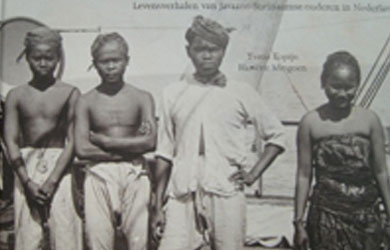
Javanese Businesses and Economy in Suriname
Entrepreneurship and Small Businesses
Javanese entrepreneurs have played a significant role in the development of the Surinamese economy. Many Javanese individuals have started small businesses, ranging from market stalls and shops to restaurants and guesthouses.
These enterprises not only contribute to the local economy but also serve as a platform for showcasing Javanese culture and traditions. Javanese-owned businesses often incorporate elements of Javanese cuisine, music, and decor, providing a unique and authentic experience for customers.
Agricultural and Farming Practices
The Javanese community in Suriname has a long history of involvement in agriculture and farming. Traditional Javanese agricultural practices, such as rice cultivation, have been passed down through generations, contributing to food security and agricultural sustainability in Suriname.
Javanese farmers often employ traditional farming techniques, utilizing organic methods and sustainable practices. They preserve heirloom seeds, cultivate diverse crop varieties, and practice crop rotation to maintain soil fertility. These practices not only ensure the preservation of Javanese agricultural traditions but also contribute to the overall environmental sustainability of Suriname.
Challenges and Opportunities for the Javanese Community
Language and Cultural Preservation
One of the primary challenges faced by the Javanese community in Suriname is the preservation of their language and cultural heritage. As Dutch and other languages become more prevalent, there is a risk of the Javanese language fading away. Efforts must be made to encourage the continued use and promotion of the Javanese language within the community and ensure its transmission to future generations.
Cultural preservation also faces challenges due to globalization and changing societal dynamics. The younger generation, influenced by modernization and Western cultural influences, may not feel a strong connection to their Javanese heritage. It is essential to engage and involve young people in cultural activities, ensuring that they understand and appreciate the value of their cultural heritage.
Social and Economic Inequalities
The Javanese community, like many other minority communities, faces social and economic inequalities in Suriname. Limited access to quality education, healthcare, and employment opportunities can hinder the advancement and socio-economic well-being of the Javanese population.
Efforts are needed to address these inequalities, provide equal opportunities for the Javanese community, and empower individuals to overcome systemic barriers. By promoting education, skills development, and entrepreneurship within the community, the Javanese population can secure a brighter future and contribute to the overall development of Suriname.
Integration and Identity
The Javanese community in Suriname faces the ongoing challenge of integrating into a broader Surinamese society while maintaining their cultural distinctiveness. The desire to assimilate and adapt to Surinamese society must be balanced with the need to retain cultural traditions, language, and values.
Finding a balance between integration and cultural preservation is essential for the long-term sustainability of the Javanese community. The celebration of diversity, intercultural dialogue, and mutual respect is crucial to creating a society where multiple identities can coexist harmoniously.
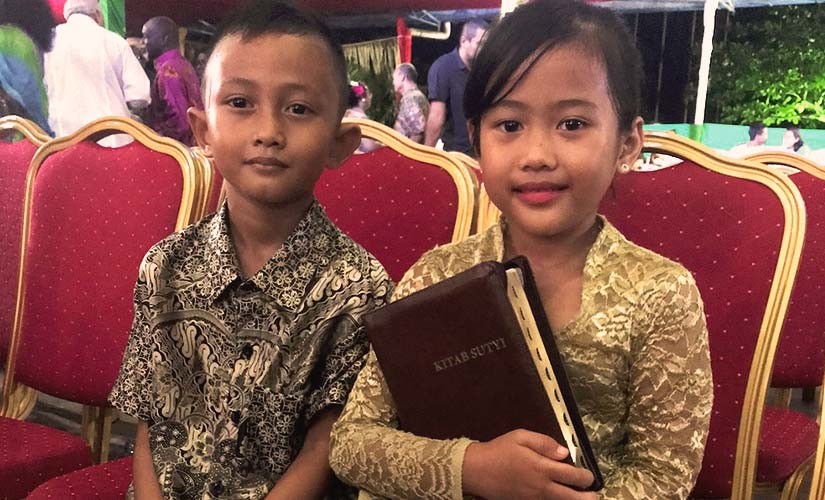
Javanese-Surinamese Relations
Interethnic Relations in Suriname
Suriname is a multicultural and multiethnic society, with various ethnic groups, including the Javanese, living side by side. Interethnic relations in Suriname have, for the most part, been characterized by tolerance, mutual respect, and cooperation.
However, like any diverse society, Suriname has faced its share of challenges and tensions. Socioeconomic disparities, cultural differences, and political dynamics can sometimes strain interethnic relations. However, Suriname has demonstrated its commitment to multiculturalism, with policies and initiatives aimed at promoting inclusivity, social cohesion, and respect for all ethnic groups.
Collaboration and Cooperation
The Javanese community in Suriname actively engages in collaborative efforts and initiatives with other ethnic groups, contributing to the overall development and progress of Surinamese society. This collaboration takes various forms, including joint cultural celebrations, interfaith dialogue, and community development projects.
By working together and embracing the diversity of Suriname, the Javanese community and other ethnic groups can create a society that values and celebrates their unique contributions. Collaboration and cooperation lay the foundation for a more inclusive and harmonious Surinamese society.
Conclusion
The Javanese community in Suriname has made a significant imprint on the country’s history, culture, and development. From their early migration to their contributions in various fields, the Javanese community has shown resilience, adaptability, and a strong commitment to maintaining their cultural heritage.
Through their language, music, dance, cuisine, and social initiatives, the Javanese community in Suriname has enriched Surinamese society, contributing to its diversity and vibrancy. Challenges remain, but the Javanese community continues to face them head-on, ensuring the preservation of their cultural traditions and building a better future for generations to come.
